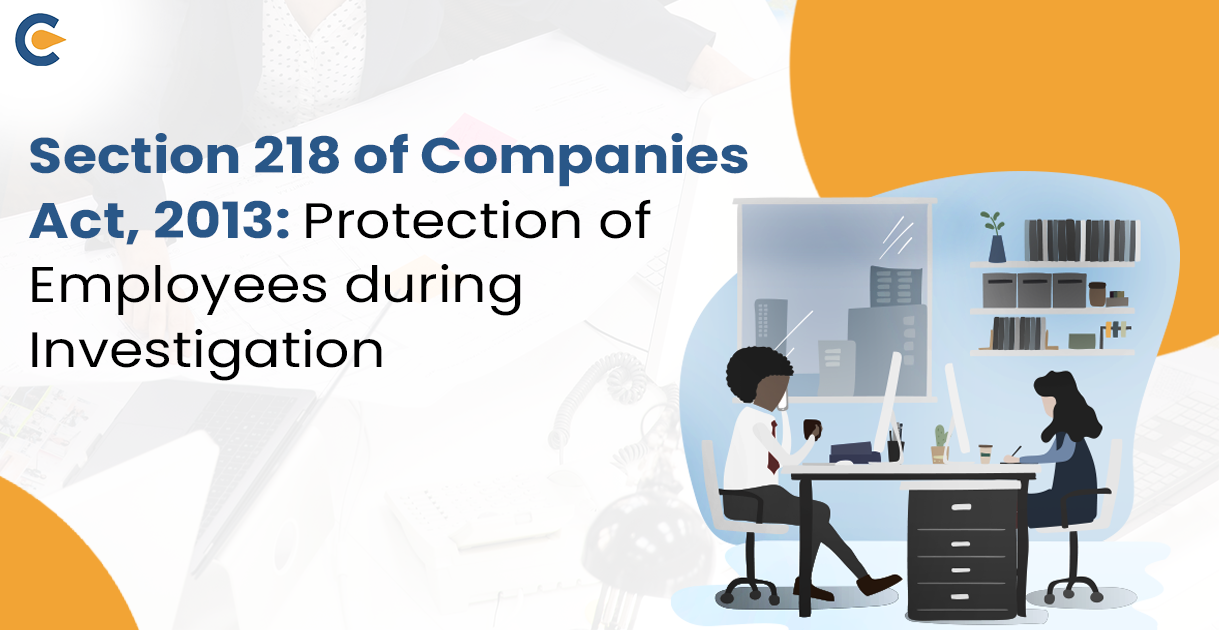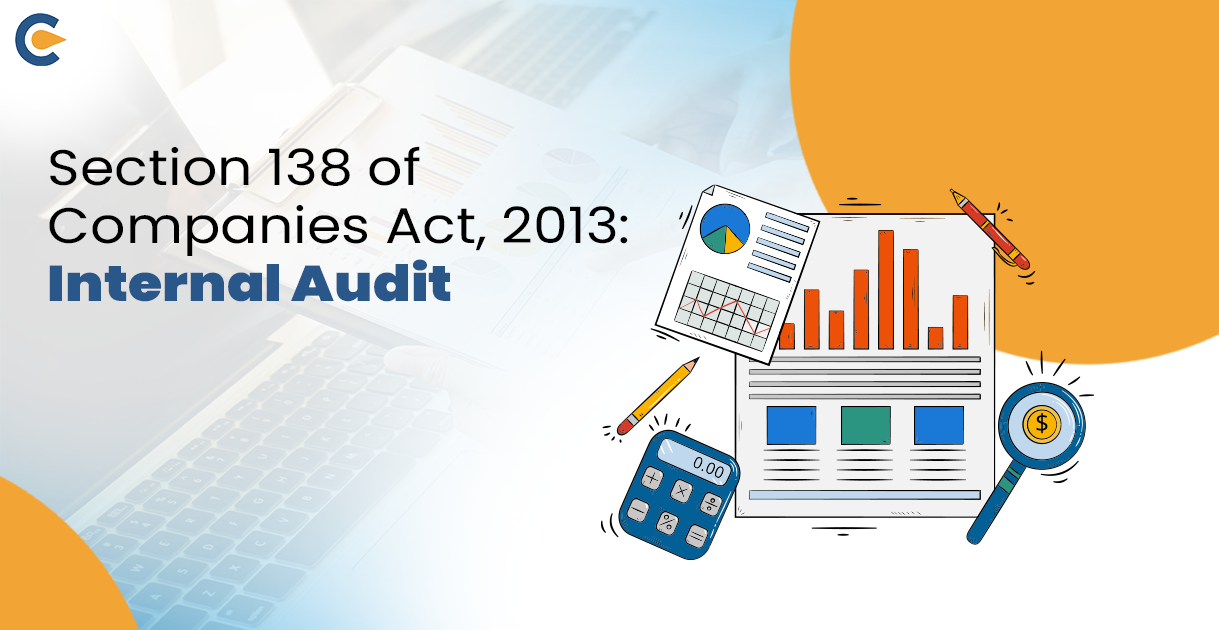All public and unlisted firms in the nation are governed by the complete provisions of the 2013 Companies Act. The Companies Act, which was initially introduced in 2009 as a Companies Bill, took four years to execute. However, not all its provisions would be instantly effective since some of them call for the Indian Government to create rules and regulations for its implementation.
By defining a set of rules for how corporations should function and what duties they have to stakeholders, the Companies Act of 2013[1] was introduced with the intention of altering the way that businesses are regulated. The Act went into effect on April 1, 2014, after receiving approval from Parliament in December 2012. The new statute puts greater emphasis on corporate governance while also empowering the shareholders. In this blog we will discuss how the employees are protected at the time of investigation in the company under Section 209 of Companies Act, 2013.
Examination of Section 218 of Companies Act, 2013
Sections 218 of the Companies Act, 2013 talks about the employees are protected when an investigation is undergoing. Section 218 of Companies Act, 2013 further states that if the company wants to remove or dismiss any employee during the time of investigation then it will have to get a prior approval from the tribunal regarding the same. The section puts emphasis on protecting the employees during the investigation from discharge or suspension which may result in a change of employment terms which will have a negative effect. The company cannot punish any employee as well in any way.
Section 218 (1) Companies Act, 2013
The Tribunal approval is very important when taking an action against the employee during the course when the investigation of the company is going on. When the investigation is going on any matter which is relating to the company or the body corporate under Section 210, Section, 212, Sections 213 or Section 219. An approval from the Tribunal is also important when the pendency of the proceeding is still there.
The company when going through the investigation cannot discharge or suspend any employee or they cannot punish him whether by dismissal removal or reducing his rank at the company or cannot change the terms of employment which may result in and disadvantage without the approval of the Tribunal. If the tribunal objects to such a proposal, then an appeal can be made in appellate court.
Section 218 (2) Companies Act, 2013
The company, another corporate body, or person in question may proceed to take the proposed action against the employee only after receiving the Tribunal’s approval in writing within thirty days of filing the application described in sub-section (1).
Section 218 (3) Companies Act, 2013
If the company, other body corporate, or person in question is unhappy with the objection raised by the Tribunal, it may file an appeal with the Appellate Tribunal in the manner and upon payment of any fees that may be stipulated within thirty days of receiving the notice of the objection.
Section 218 (4) Companies Act, 2013
The Appellate Tribunal’s judgment on the appeal is binding and final against both the Tribunal and the firm, other body corporate, or individual in question.
Section 218 (5) Companies Act, 2013
It is expressly stated, in order to dispel any uncertainty that the contents of this section shall apply without affecting the terms of any other laws that are now in existence.
Section 218 of Companies Act, 2013 helps in ensuring that there is a fair and ethical workplace. Illegal and fraudulent activities often take place in companies, and it affects the employees in many ways. Employees are protected under this section at the time of the investigation. This section protects the employees from an unfair measure, if during the investigation the company tries to dismiss or remove the employees, prior approval will be required. These regulations are vital for creating a climate conducive to effective corporate governance.
Conclusion
In conclusion Section 218 of Companies Act, 2013 protects the employees from uncertainties at the time when the company is going through an investigation. It helps in ensuring the employees that their jobs will be saved until the whole investigation ends, and if the company wants to remove/dismiss any employee prior permission of the NCLT will be required. If the NCLT is against the decision of removal/ dismissal, then the appeal can be made to the appellate court.
Frequently Asked Questions
Section 218 of the companies Act is deals with the protection of employees during the investigation.
The main goal of Section 218 of the 2013 Companies Act is to safeguard employees during corporate investigations by prohibiting unjust dismissal or unfavourable modifications to their employment terms
The National Company Law Tribunal is referred to as NCLT. It is a quasi-judicial organization created in accordance with Section 408 of the 2013 Companies Act. The importance of NCLT is in approving any actions that a business plans to take against employees while conducting investigations, as required by Section 218.
For all public and unlisted companies in India, the Companies Act of 2013 is applicable
In the course of investigations, Section 218 forbids the corporation from firing or suspending employees, altering their job conditions, or enacting other punitive measures without first receiving NCLT consent.
According to Section 218(2), the corporation must get written clearance from the NCLT within thirty days of submitting the application.
According to Section 218 (3), the company has thirty days from the time it receives the objection notice to submit an appeal with the Appellate Tribunal if the NCLT opposes to the company’s proposal.
Read Our Article: Section 217 Of Companies Act, 2013: Procedures, Powers Etc.,Of Inspectors











